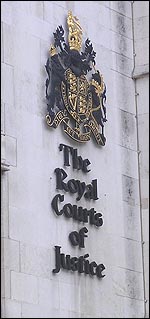Yard and horse owners are being encouraged to have written agreements in place to cover the authorisation of emergency veterinary treatment after an owner took action against her vet when her colicking horse was put down in her absence
The 2019 legal battle was brought after the horse was put down, rather than undergoing colic surgery, when its owner was not present.
{"content":"PHA+V2hpbGUgdGhlIHZldCB0b2xkIHRoZSB5YXJkIG93bmVyIHN1cmdlcnkgd2FzIGFuIG9wdGlvbiwgc2hlIGRpZCBub3QgYWR2aXNlIG9uIHRoZSBob3JzZeKAmXMgY2hhbmNlIG9mIHJldHVybmluZyB0byBjb21wZXRpdGlvbi4gVGhlIHlhcmQgb3duZXIgZGlkIG5vdCBwYXNzIG9uIHRoZSBmYWN0IHN1cmdlcnkgd2FzIGFuIG9wdGlvbiB0byB0aGUgaG9yc2Ugb3duZXIsIHdobyBzYWlkIHNoZSB3b3VsZCBoYXZlIG9wdGVkIGZvciBzdXJnZXJ5IGhhZCBzaGUgYmVlbiBnaXZlbiBtb3JlIGluZm9ybWF0aW9uIG9uIHRoZSBwcm9nbm9zaXMuPC9wPgo8cD5UaGUgb3duZXIgdG9vayBsZWdhbCBhY3Rpb24gYWdhaW5zdCB0aGUgdmV0IHByYWN0aWNlLCBjbGFpbWluZyBuZWdsaWdlbmNlIGZvciBmYWlsaW5nIHRvIGFkdmlzZSB0aGUgaG9yc2UgaGFkIGEgNTAvNTAgcHJvc3BlY3Qgb2YgcmV0dXJuaW5nIHRvIGNvbXBldGl0aW9uIGFmdGVyIHN1cmdlcnkuIFRoZSBqdWRnZSBmb3VuZCBhcyB0aGUgeWFyZCBvd25lciBkaWQgbm90IHBhc3Mgb24gYW55IGluZm9ybWF0aW9uIGFib3V0IHN1cmdlcnkgdG8gdGhlIGhvcnNlIG93bmVyLCBzaGUgd291bGQgbm90IGhhdmUgcGFzc2VkIG9uIHRoZSBwcm9nbm9zaXMsIGV2ZW4gaWYgdGhpcyBoYWQgYmVlbiBnaXZlbiBieSB0aGUgdmV0LiBUaGVyZWZvcmUsIHRoZSBjYXNlIHdhcyBkaXNtaXNzZWQuPC9wPgo8cD5IYW5uYWggQnJhZGxleSBvZiB0aGUgRXF1aW5lIExhdyBGaXJtIHRvbGQgPGVtPkgmYW1wO0g8L2VtPiB0aGUgY2FzZSB3YXMgc2lnbmlmaWNhbnQgYmVjYXVzZSBpdCBjb3VsZCBoYXZlIGJlZW4gYnJvdWdodCBhZ2FpbnN0IHRoZSB5YXJkIG93bmVyIGZvciBub3QgcGFzc2luZyBvbiB0aGUgaW5mb3JtYXRpb24uIFNoZSByZWNvbW1lbmRzIHlhcmQgYW5kIGhvcnNlIG93bmVycyBoYXZlIGFuIGFncmVlbWVudCBpbiBwbGFjZSBvbiB3aGF0IGRlY2lzaW9ucyBzaG91bGQgYmUgdGFrZW4gaW4gdGhlIGhvcnNlIG93bmVy4oCZcyBhYnNlbmNlIGluIGFuIGVtZXJnZW5jeS48L3A+CjxwPjxkaXYgY2xhc3M9ImFkLWNvbnRhaW5lciBhZC1jb250YWluZXItLW1vYmlsZSI+PGRpdiBpZD0icG9zdC1pbmxpbmUtMiIgY2xhc3M9ImlwYy1hZHZlcnQiPjwvZGl2PjwvZGl2PjxzZWN0aW9uIGlkPSJlbWJlZF9jb2RlLTMxIiBjbGFzcz0iaGlkZGVuLW1kIGhpZGRlbi1sZyBzLWNvbnRhaW5lciBzdGlja3ktYW5jaG9yIGhpZGUtd2lkZ2V0LXRpdGxlIHdpZGdldF9lbWJlZF9jb2RlIHByZW1pdW1faW5saW5lXzIiPjxzZWN0aW9uIGNsYXNzPSJzLWNvbnRhaW5lciBsaXN0aW5nLS1zaW5nbGUgbGlzdGluZy0tc2luZ2xlLXNoYXJldGhyb3VnaCBpbWFnZS1hc3BlY3QtbGFuZHNjYXBlIGRlZmF1bHQgc2hhcmV0aHJvdWdoLWFkIHNoYXJldGhyb3VnaC1hZC1oaWRkZW4iPg0KICA8ZGl2IGNsYXNzPSJzLWNvbnRhaW5lcl9faW5uZXIiPg0KICAgIDx1bD4NCiAgICAgIDxsaSBpZD0ibmF0aXZlLWNvbnRlbnQtbW9iaWxlIiBjbGFzcz0ibGlzdGluZy1pdGVtIj4NCiAgICAgIDwvbGk+DQogICAgPC91bD4NCiAgPC9kaXY+DQo8L3NlY3Rpb24+PC9zZWN0aW9uPjwvcD4KPHA+4oCcSGF2aW5nIGEgY29udHJhY3QgaXMgaW1wb3J0YW50OyBmb3IgeWFyZCBvd25lcnPigJkgcHJvdGVjdGlvbiBhbmQgaG9yc2Ugb3duZXJz4oCZIHBlYWNlIG9mIG1pbmQuIFBlb3BsZSBoYXZlIGRpZmZlcmVudCBleHBlY3RhdGlvbnMgYmFzZWQgb24gc2VudGltZW50YWwgYXR0YWNobWVudCwgdmFsdWUgb2YgdGhlIGhvcnNlIGFuZCBmaW5hbmNpYWwgYWZmYWlycyzigJ0gc2hlIHNhaWQuPC9wPgo8cD7igJxFdmVyeW9uZSBoYXMgdG8gYmUgY2xlYXIgYmVjYXVzZSBkaXNwdXRlcyBoYXBwZW4gd2hlbiBwZW9wbGUgbWFrZSBkZWNpc2lvbnMgdGhleeKAmXJlIG5vdCBhdXRob3Jpc2VkIHRvLuKAnTwvcD4KPHA+TXMgQnJhZGxleSBzYWlkIHlhcmRzIHNob3VsZCBoYXZlIHRlcm1zIHNldHRpbmcgb3V0IGVtZXJnZW5jeSBzaXR1YXRpb25zLiBTaGUgYWRkZWQgdGhhdCBhZ3JlZW1lbnRzIGNhbiBiZSBtYWRlIGluIGFuIGV4Y2hhbmdlIG9mIHdyaXR0ZW4gY29tbXVuaWNhdGlvbiBzdWNoIGFzIGVtYWlsLCB3aGVyZWJ5IGJvdGggcGFydGllcyBhZ3JlZS48L3A+CjxkaXYgY2xhc3M9ImFkLWNvbnRhaW5lciBhZC1jb250YWluZXItLW1vYmlsZSI+PGRpdiBpZD0icG9zdC1pbmxpbmUtMyIgY2xhc3M9ImlwYy1hZHZlcnQiPjwvZGl2PjwvZGl2Pgo8cD7igJxTb2NpZXR5IGlzIGJlY29taW5nIG1vcmUgbGl0aWdpb3VzOyBwZW9wbGUgd2FudCB0byBwcm90ZWN0IHRoZW1zZWx2ZXMgYW5kIHRoYXQgaXMgdGhlIGNvcnJlY3QgdGhpbmcgdG8gZG8g4oCUIHBhcnRpY3VsYXJseSBmcm9tIGEgeWFyZCBvd25lcuKAmXMgcGVyc3BlY3RpdmUs4oCdIHNoZSBzYWlkLjwvcD4KPHA+4oCcRm9yIGhvcnNlIG93bmVycywgaXQgZ2l2ZXMgY2VydGFpbnR5IGJlY2F1c2UgdGhleSBkb27igJl0IHdhbnQgYSBzaXR1YXRpb24gd2hlcmUgdGhleeKAmXJlIGluY3VycmluZyB2ZXQgYmlsbHMgdGhleSB3b3VsZG7igJl0IGhhdmUgYXV0aG9yaXNlZCwgb3Igd2hlcmUgYSBob3JzZSBpcyBldXRoYW5pc2VkIHdoZW4gdGhleSB3b3VsZG7igJl0IGhhdmUgY2hvc2VuIHRoaXMu4oCdPC9wPgo8ZGl2IGNsYXNzPSJhZC1jb250YWluZXIgYWQtY29udGFpbmVyLS1tb2JpbGUiPjxkaXYgaWQ9InBvc3QtaW5saW5lLTQiIGNsYXNzPSJpcGMtYWR2ZXJ0Ij48L2Rpdj48L2Rpdj4KPHA+QnJpdGlzaCBIb3JzZSBTb2NpZXR5IChCSFMpIGhlYWQgb2YgYXBwcm92YWxzIE9vbmFnaCBNZXllciB0b2xkIDxlbT5IJmFtcDtIPC9lbT4gaW4gdGhlIG93bmVy4oCZcyBhYnNlbmNlIHRoYXQgZGVjaWRpbmcgd2hldGhlciBhIGhvcnNlIHNob3VsZCBiZSByZWZlcnJlZCB0byBhIHZldGVyaW5hcnkgaG9zcGl0YWwgb3IgZm9yIHN1cmdlcnkgaXMg4oCcYWxtb3N0IGltcG9zc2libGXigJ0gaWYgZ3VpZGVsaW5lcyBhcmUgbm90IGluIHBsYWNlLjwvcD4KPHA+4oCcQ29udHJhY3RzIHNob3VsZCBvdXRsaW5lIGEgcGxhbiB0byBiZSBmb2xsb3dlZCBpbiBlbWVyZ2VuY2llcyDigJQgZm9yIGV4YW1wbGUsIHdyaXR0ZW4gZGV0YWlscyBvZiBhIGdvLXRvIGNvbnRhY3QgdGhlIGhvcnNlIG93bmVyIGF1dGhvcmlzZXMgdG8gbWFrZSBkZWNpc2lvbnMgc2hvdWxkIHRoZXkgbm90IGJlIGNvbnRhY3RhYmxlLOKAnSBzaGUgc2FpZC48L3A+CjxkaXYgY2xhc3M9ImFkLWNvbnRhaW5lciBhZC1jb250YWluZXItLW1vYmlsZSI+PGRpdiBpZD0icG9zdC1pbmxpbmUtNSIgY2xhc3M9ImlwYy1hZHZlcnQiPjwvZGl2PjwvZGl2Pgo8cD7igJxDb21tdW5pY2F0aW9uIHNob3VsZCBpbmNsdWRlIGNsYXJpdHkgb24gcGVybWlzc2lvbiB0byBkaXNjdXNzIGFuZCBhdHRlbmQgdG8gdGhlIGhvcnNlIHdpdGggdGhlIHZldGVyaW5hcnkgcHJhY3RpY2Ugd2l0aCB3aGljaCB0aGUgaG9yc2Ugb3IgeWFyZCBpcyByZWdpc3RlcmVkLiBNYW55IHZldHMgcmVxdWVzdCBjbGllbnRzIG5vdGlmeSB0aGVtIGluIGFkdmFuY2Ugb2YgYW55IHN1Y2ggcGVybWlzc2lvbnMu4oCdPC9wPgo8ZGl2IGNsYXNzPSJpbmplY3Rpb24iPjwvZGl2Pgo8cD5BIHNwb2tlc21hbiBmb3IgdGhlIEVxdWVzdHJpYW4gRW1wbG95ZXJzIEFzc29jaWF0aW9uIHRvbGQgPGVtPkgmYW1wO0g8L2VtPiB3cml0dGVuIHBvbGljaWVzIGFyZSDigJx2aXRhbOKAnSBmb3IgYnVzaW5lc3NlcyB3aXRoIGVxdWluZXMgaW4gdGhlaXIgY2FyZS48L3A+CjxwPuKAnFRoaXMgc2hvdWxkIGNvdmVyIGRheS10by1kYXkgY2FyZSwgcmVzcG9uc2liaWxpdGllcyB3aGVuIGNvbnRhY3RpbmcgdGhlIHZldCBhbmQgb3duZXJz4oCZIHdpc2hlcyBpbiB0aGUgZXZlbnQgb2YgZW1lcmdlbmN5LiBJdCBpcyBiZXR0ZXIgdG8gaGF2ZSB0aGUgY29udmVyc2F0aW9uIGJlZm9yZSBhbiBlbWVyZ2VuY3kgdGhhbiBkdXJpbmcgYSB0aW1lLXNlbnNpdGl2ZSBhbmQgc3RyZXNzZnVsIHNpdHVhdGlvbiB3aGVuIGVtb3Rpb25zIGFyZSBydW5uaW5nIGhpZ2gu4oCdPC9wPgo8aDM+VGhpbmdzIHRvIGNvbnNpZGVyPC9oMz4KPHA+TXMgQnJhZGxleSByZWNvbW1lbmRzIG93bmVycyBjb25zaWRlciB0aGUgZm9sbG93aW5nIHBvaW50czo8L3A+Cjx1bD4KPGxpPldoYXQgZWZmb3J0cyBzaG91bGQgYmUgbWFkZSB0byBjb250YWN0IHlvdSBpZiBhbiBpc3N1ZSBhcmlzZXMgaW4gcmVsYXRpb24gdG8gdGhlIHdlbGZhcmUgb2YgeW91ciBob3JzZT88L2xpPgo8bGk+SWYgeW91IGNhbm5vdCBiZSBjb250YWN0ZWQsIGNhbiBhIHZldCBiZSBjYWxsZWQgd2l0aG91dCB5b3VyIGF1dGhvcml0eT88L2xpPgo8bGk+RG8geW91IHdpc2ggdG8gcHV0IGEgY2FwIG9uIGhvdyBtdWNoIGNhbiBiZSBpbmN1cnJlZCBvbiB2ZXTigJlzIGJpbGxzIGluIHlvdXIgYWJzZW5jZT8gTWFrZSB0aGlzIGRlY2lzaW9uIGNvbnNpZGVyaW5nIHRoZSBsZXZlbCBvZiB5b3VyIGluc3VyYW5jZSBjb3ZlciBhbmQgYW55IGV4Y2x1c2lvbnMgb24gdGhlIHBvbGljeS4gSWYgbmVjZXNzYXJ5LCBhZ3JlZSBhIHNlcGFyYXRlIGNhcCBmb3IgZmVlcyB0aGF0IGFyZSBwb3RlbnRpYWxseSBub3QgY292ZXJlZCBieSB5b3VyIGluc3VyYW5jZSBwb2xpY3kuPC9saT4KPGxpPkRvIHlvdSB3aXNoIHRvIGRlZmluZSBob3cgY2VydGFpbiBpbXBvcnRhbnQgb3IgdXJnZW50IHZldGVyaW5hcnkgZGVjaXNpb25zIHNob3VsZCBiZSBtYWRlIGlmIHlvdSBjYW7igJl0IGJlIHJlYWNoZWQ\/IEl0IHdpbGwgYmUgZGlmZmljdWx0IHRvIGRlZmluZSB5b3VyIHdpc2hlcyBmb3IgZXZlcnkgcG9zc2libGUgc2NlbmFyaW8uIFlvdSBjb3VsZCwgZm9yIGV4YW1wbGUsIGFncmVlIHRoZSB5YXJkIG93bmVyIG1heSBhdXRob3Jpc2UgdmV0ZXJpbmFyeSB0cmVhdG1lbnQgdG8gcmVsaWV2ZSB0aGUgaG9yc2UgZnJvbSBwYWluIG9yIHRvIHByZXZlbnQgdGhlIGRldGVyaW9yYXRpb24gb2YgYW55IGNvbmRpdGlvbi48L2xpPgo8bGk+RG8geW91IHdpc2ggdG8gYWdyZWUgaW4gd2hhdCBjaXJjdW1zdGFuY2VzIHRoZSB5YXJkIG93bmVyIG1heSBzYW5jdGlvbiB0aGUgZXV0aGFuYXNpYSBvZiB0aGUgaG9yc2U\/IEFzIHlvdSB3aWxsIHVubGlrZWx5IGJlIGFibGUgdG8gZGVmaW5lIGFsbCB0aGUgcG9zc2libGUgc2NlbmFyaW9zIHdoZXJlIGV1dGhhbmFzaWEgbWF5IGJlIGEgcG9zc2liaWxpdHksIGl0IG1heSBiZSBzZW5zaWJsZSB0byBhZ3JlZSB0aGF0IGV1dGhhbmFzaWEgbWF5IGJlIHNhbmN0aW9uZWQgaWYgaXQgaXMgYWR2aXNlZCBieSB0aGUgYXR0ZW5kaW5nIHZldGVyaW5hcnkgc3VyZ2Vvbi48L2xpPgo8L3VsPgo8cD7CoDwvcD4KPHA+Cg=="}
You may also be interested in…
Credit: Taken free from google
A judge said there was no obligation for the owner to have supervised the child involved on the yard
Credit: Taken free from google
A yard owner who faced a six-figure personal injury claim after accepting £30 from a novice rider to help her
Hard hats could become compulsory when handling horses at riding schools and livery yards following a record level of compensation
A High Court judge today ruled that Jillian Carenza, owner of The Vine Riding and Livery Yard, was in no
Lawyers say a recent equine court case — in which a claimant was caught out by Facebook — has highlighted
A court case has been hailed a “triumph for common sense” by equestrian lawyers and the British Horse Society
Stay in touch with all the news in the run-up to and throughout the major shows and events during 2025 and beyond with a Horse & Hound subscription. Subscribe today for all you need to know ahead of these major events, plus online reports on the action as it happens from our expert team of reporters and in-depth analysis in our special commemorative magazines. Have a subscription already? Set up your unlimited website access now
H&H senior news writer
Since joining H&H in 2018, Becky has covered a broad range of equestrian news including welfare matters, veterinary studies, FEI Tribunal hearings and road safety campaigns. She has also interviewed top riders including Scott Brash, John Whitaker and Ian Stark, to name just a few. Becky’s reporting has taken her to Canada for Spruce Meadows and France for Pau five-star, as well as the Royal Highland and Blair Castle International Horse Trials closer to home. She was also a key part of the remote reporting team for the Tokyo Olympics and the Europeans.







